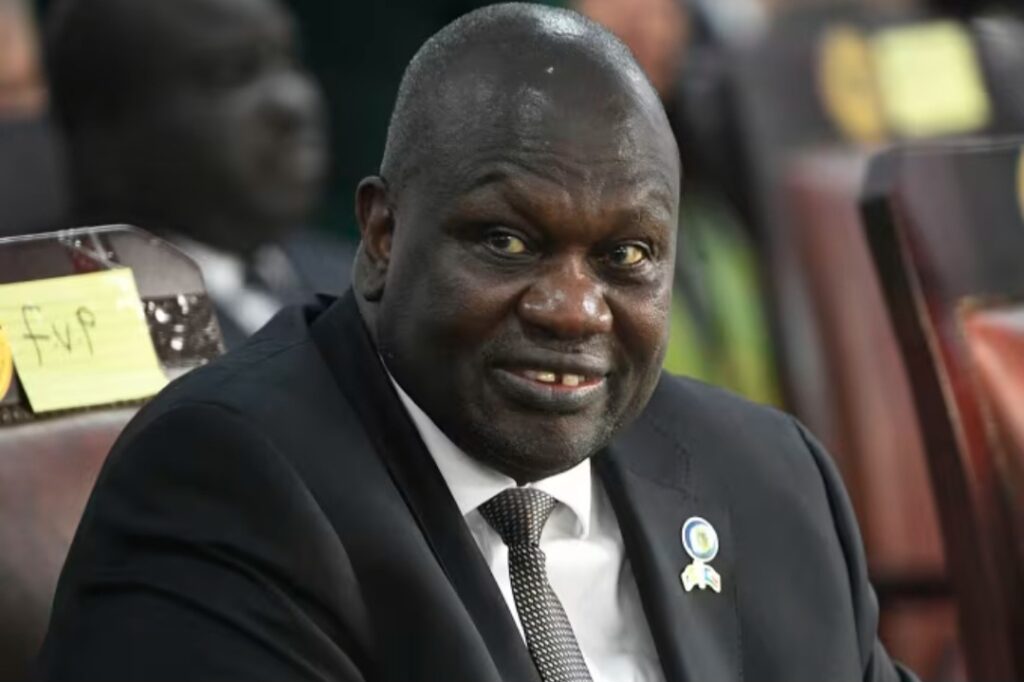
Esther Imonmion
The high-profile trial of South Sudan’s suspended Vice President Riek Machar is raising fresh concerns about peace and stability in the country.
Machar appeared in court on 22 September in Juba, caged alongside seven co-defendants, to face charges ranging from treason and crimes against humanity to terrorism and conspiracy. It was his first public appearance since March, when he was placed under house arrest following allegations of involvement in an attack on government troops.
President Salva Kiir suspended Machar earlier this month, a move analysts warn could unravel the fragile 2018 peace deal between the two leaders. The accord ended years of civil war and remains the foundation of South Sudan’s transitional government.
Defense lawyers argue that prosecuting Machar undermines the peace agreement, while civil society leaders say the trial highlights both political rivalries and ethnic divisions.
“This is a context of power struggle among the political elites. But it has also taken an ethnic dimension, with all eight accused coming from one group,” said Edmund Yakani, executive director of the Community Empowerment for Progress Organization (CEPO). “The peace agreement has become very important to South Sudanese citizens. Right now, the court trial is the dissemination of the peace agreement we missed from day one.”
Observers warn that the proceedings risk fueling mistrust at a time when citizens look to the peace accord as a roadmap away from violence. Rights groups have also raised concerns about the ethnic undertones of the case.
The trial has been adjourned until Monday.
